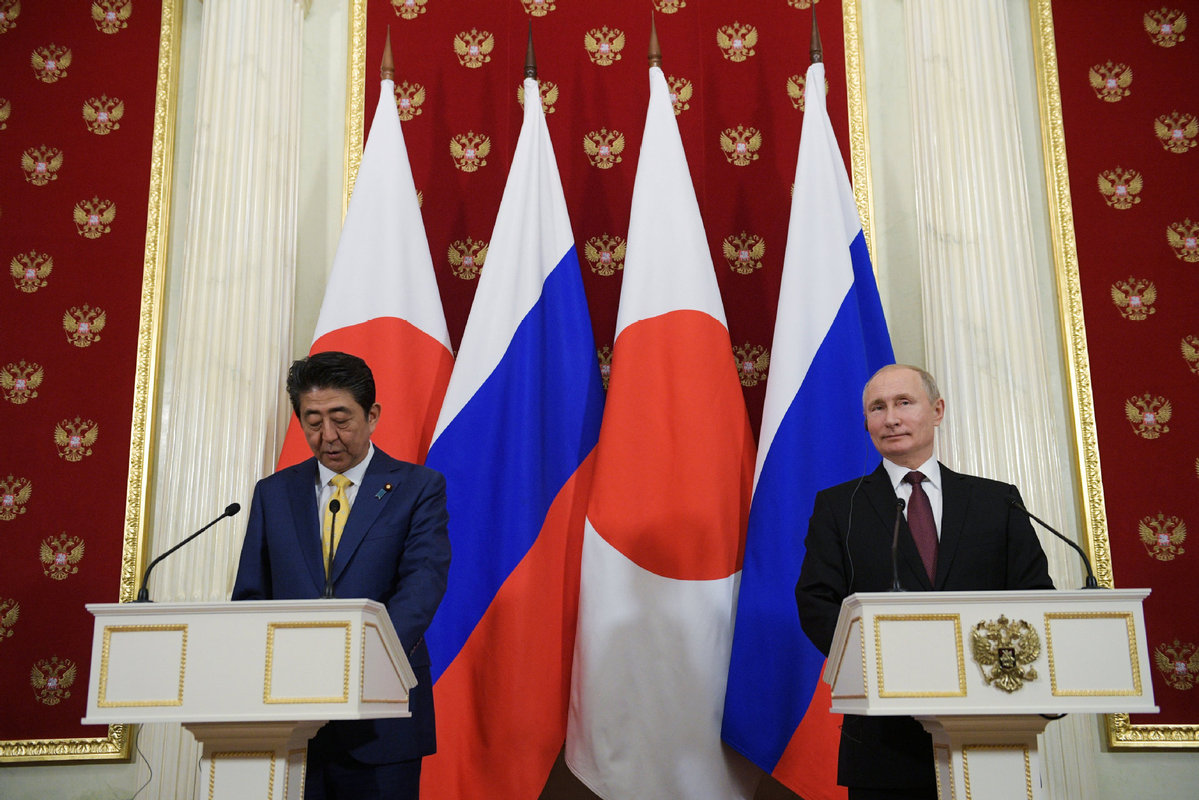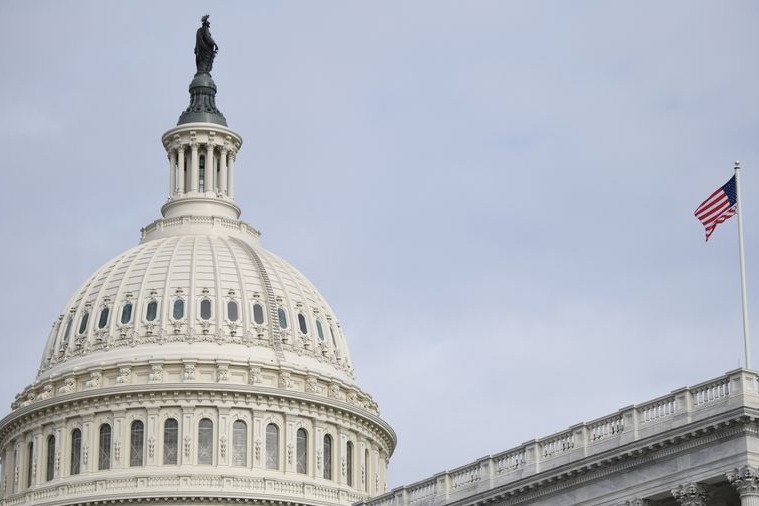Japan needs reality check on Kuril dispute


Russia and Japan have long been locked in a dispute over four islands, known as Kuril Islands in Russia and Northern Territories in Japan. On Jan 22, Japanese Prime Minister Shinzo Abe met with Russian President Vladimir Putin in Moscow, the first official meeting between the two leaders since they agreed to accelerate negotiations on a peace treaty based on the Soviet-Japanese Joint Declaration of 1956, which ended the formal state of war between the Soviet Union and Japan.
The dispute over four of the Kuril Islands has not been resolved due to the huge differences in the two countries' positions, and despite Abe meeting with Putin 25 times on different occasions. Japan wants to reclaim the islands, which have been under Russia's sovereignty since the end of World War II. To resolve the issue, Abe and Putin have asked their foreign ministers to continue the negotiation in spite of their serious differences.
The San Francisco Peace Treaty, signed between the Allies and Japan in 1951, states Japan must give up "all right title and claim to the Kuril Islands" but it does not recognize the Soviet Union's sovereignty over them either.
Productive meeting without results
With Abe seeking to sign a peace treaty with Moscow in order to resolve the territorial dispute, Putin has said the two sides have been communicating with each other to reach a potential peace treaty. Putin also said his meeting with Abe was productive and will help expand bilateral cooperation. Abe, on his part, has reiterated that Japan is willing to make joint efforts to develop the islands. Still, the two leaders avoided the critical question of the territorial dispute during the press conference.
The Putin-Abe meeting failed to yield concrete results due to the following factors:
First, perhaps Japan believes Russia needs to revitalize its economy and the promise of Japanese investment and financial support would help soften Russia's stance on the islands. But the Japanese strategy doesn't seem to work-not least because Russia is especially sensitive to territorial issues. For example, Putin once said that Russia is indeed vast, but is without any superfluous territory. Although Russia has adopted a flexible attitude toward the South Kuril Islands to some extent, it insists that territorial sovereignty is not negotiable.
Japan's expectations are not realistic
Second, Japan seems to place excessive demands. Normally, the country with military superiority has benefited more when a peace treaty is signed. But despite being at a disadvantage in terms of military power, Japan expects to reclaim the four islands, which is unrealistic.
Third, Japan chose the wrong time for negotiation, because as part of a military alliance with the United States, Japan also imposed economic sanctions on Russia. And since the situation hasn't changed, it should not have raised the territorial dispute now.
Furthermore, Japan has misjudged Russia's determination to safeguard the postwar world order. Prior to the meeting between Abe and Putin, Japanese politicians created enormous public pressure at home in order to force Russia to back down on the Kuril Islands issue. Also, Japan wants to use a peace treaty with Russia as a bargaining chip, which seems a futile exercise.
Two countries' media outlets also divided
In fact, the mainstream media outlets in the two countries also interpret the Soviet-Japanese Joint Declaration differently. Japan thinks Russia should return the two larger islands of Shikotan and Habomai to it.
But on the basis of the post-World War II treaties and Russia's sovereignty over the four islands, Russia is willing to jointly develop the two smaller islands with Japan while Japan demands the sovereignty of all four islands or at least the two larger islands. Given these facts, it is obviously difficult for the two countries to agree on a peace treaty. Which effectively means Japan has little chance of reclaiming the four islands.
Russia has been emphasizing the importance of economic development, especially in the Far East, and cooperation with Japan. As to the signing of a peace treaty, Moscow has an open attitude while Tokyo appears more active, which means both sides are willing to deal with the issue.
Talks on territorial dispute to continue
So, despite the meeting not yielding any concrete results, the foreign ministers of both countries will continue to hold talks in an attempt to reach a consensus on the issue.
Besides, Japan has invited Putin to attend the G20 Summit scheduled for June in Osaka, and is seeking to advance the negotiation process. However, Russia seems in no hurry to sign a peace treaty with Japan. And the fact that Japan aims to use the signing of a peace treaty in exchange for the sovereignty of the islands reflects its political ignorance.
If Japan were to abandon its unrealistic illusions, separate the economic issues from the signing of a peace treaty and instead make more efforts to improve bilateral ties, perhaps Russia-Japan relations could get back onto the right development track.
The author is a research fellow at the Europe Research Center, China University of Political Science and Law.


































